Thomas Jefferson’s resume is hard to beat. At 23, he was serving in the Virginia Colonial Legislature and, within a decade, he was in the Virginia governor’s mansion. He followed that up as ambassador to France, secretary of state, vice president, and a two-term president. From a lifetime of profound accomplishments, he chose three to list on his tombstone at Monticello.
Today is the 239th anniversary of one of those accomplishments, the Virginia Statute for Religious Freedom, which he drafted in 1777 and the Virginia Legislature adopted in 1786. Remembering a past event can be worthwhile, but doing so here must rekindle a present commitment to this fundamental freedom.
Jefferson left for France in May 1785, leaving the Virginia Statute for Religious Freedom in James Madison’s hands to get it over the legislative finish line. The Virginia Statute for Religious Freedom, which disestablished the Church of England in Virginia, would prove to be one-half of what would soon be the First Amendment’s protection for religious freedom.
Madison supplied the other half only a month later when he penned the Memorial and Remonstrance Against Religious Assessments in opposing a bill to use public funds to support religious teachers. Madison argued that the right to exercise religion according to one’s “conviction and conscience” is “in its nature an unalienable right.” The Declaration of Independence, which Jefferson had drafted and signed in 1776, identified securing unalienable rights as the very purpose of government.
At the Philadelphia Convention to draft the Constitution in the summer of 1787, Madison combined these two principles in the First Amendment: “Congress shall make no law respecting an establishment of religion, or prohibiting the free exercise thereof.” The Founding Fathers really wanted to prevent government from undermining the individual right to exercise religion. This required prohibiting the government from coercing religious belief or behavior and the conviction that the unalienable right to exercise religion is “precedent, both in order of time and in degree of obligation, to the claims of Civil Society.”
By this time, writes professor Michael McConnell, “the American states had already experienced 150 years of a higher degree of religious diversity than had existed anywhere else in the world.” The Virginia Statute for Religious Freedom and the First Amendment represent the Founding Fathers’ desire to make that experience permanent.
In his 1941 State of the Union Address to Congress, as World War II raged in Europe, President Franklin Roosevelt proposed “four essential human freedoms” that all people should have, including the “freedom to worship.” Seven years later, the United States signed the United Nations’ Universal Declaration of Human Rights, accepting the obligation to “promote respect for these rights and freedoms and … to secure their universal and effective recognition.”
We are not keeping that commitment. In his 2010 Religious Freedom Day proclamation, for example, President Barack Obama said that the Virginia Statute for Religious Freedom “was a statement of principle, declaring freedom of religion as the natural right of all humanity—not a privilege for any government to give or take away.” Yet his administration developed and got Congress to enact the Affordable Care Act with no apparent regard for its impact on religious freedom. The Supreme Court has repeatedly held that the Affordable Care Act’s requirement that employers provide free insurance coverage for abortifacient methods of birth control violates the right to freely exercise religion.
When she was a senator, Vice President Kamala Harris supported a resolution asserting that “religious freedom is fundamental to the national character of the United States.” At the same time, she co-sponsored the Women’s Health Protection Act, which would prohibit any government from taking any action that could, even potentially, reduce the incidence of abortion. Last October, during her presidential campaign, Harris rejected any exemptions, even for religious liberty.
Religious freedom, right here in America and around the world, is under attack. In 1941, the Supreme Court recognized that the unalienable right to exercise religion is “in a preferred position.” Today, at best, it is simply one of many considerations or competing ideas or, at worst, a negative cultural or social element that must be eliminated.
Talk, as they say, is cheap; in Washington, it’s free and often worth little. Speeches, declarations, and proclamations are one thing, action is another. Do we still believe, as Congress unanimously said in 1998, that “the right to freedom of religion undergirds the very origin and existence of the United States”? Or that, as President Joe Biden said yesterday in his Religious Freedom Day proclamation, that “religious freedom is at the core of who we are as a nation”? If so, we should return to acting like it.



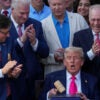








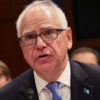














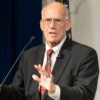

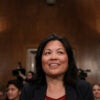
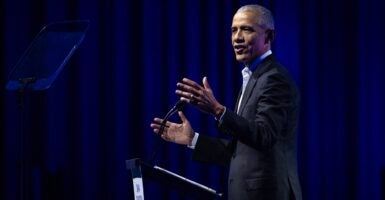
One Reply to “Attacks on Religious Freedom Continue Despite Washington’s Rhetoric”